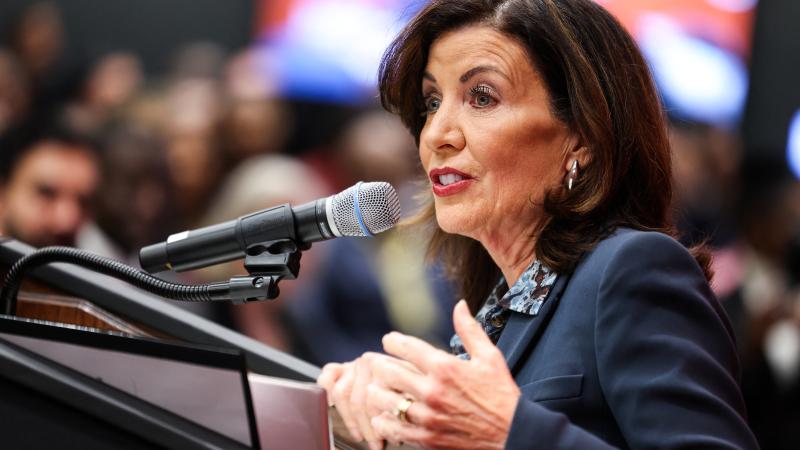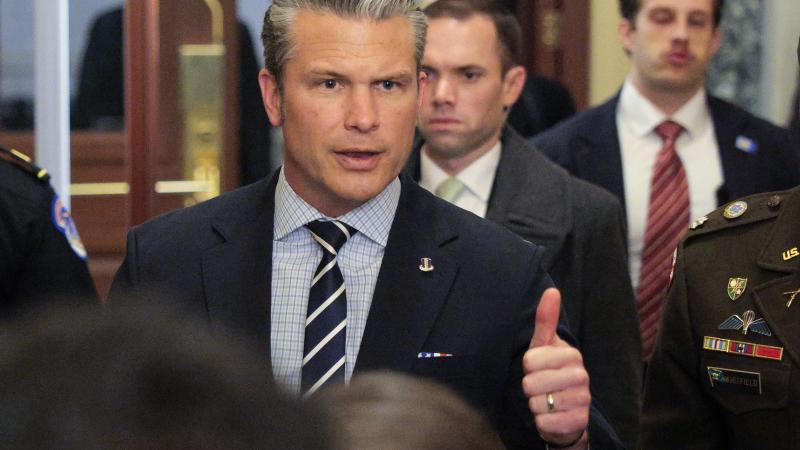Biden's marijuana pardons mark latest round of rule by executive fiat instead of legislation
President Obama once famously boasted that "I have a pen and I have a phone" when asked about his use of Executive Orders to roll back many of his predecessor's policies. Biden is taking the same use of executive authority to pursue policy goals that would otherwise be unlikely to clear one or both chambers of Congress.
President Joe Biden commuted sentences for 11 non-violent drug offenders and issued a sweeping pardon for simple possession and marijuana use under D.C. and federal law.
While the President has the constitutional authority to pardon convicts of federal crimes and crimes committed in the District of Columbia, the pardons underscore an effort by the White House to enact substantial policy reforms via executive fiat rather than negotiating with the divided Congress.
The past three administrations saw relatively few periods of unified government and presidents have often had to deal with at least one chamber of Congress under the control of the opposition, a situation that has often caused frustrations in the Oval Office and motivated expansive unilateral action by the White House.
Biden, like presidents before him, has made extensive use of his executive authority to pursue policy goals that would otherwise be unlikely to clear one or both chambers of Congress and therefore not make it to his desk for signature.
Here are some of the more significant instances:
The drug pardons
In Friday's announcement, Biden acknowledged his extensive use of the executive pardon, saying "I have exercised my clemency power more than any recent predecessor has at this point in their presidency."
While the power to pardon is not under question, Biden asserted that he aimed to use his executive authority as an example to drive policy reform at the state level, saying "It’s time that we right these wrongs. Just as no one should be in a federal prison solely due to the use or possession of marijuana, no one should be in a local jail or state prison for that reason, either. That’s why I continue to urge Governors to do the same with regard to state offenses and applaud those who have since taken action."
Similarly, in October 2022, Biden announced a blanket pardon for thousands of individuals convicted of federal marijuana charges. The drug remains illegal at the federal level and is listed as a Schedule 1 substance, meaning it has "a high potential for abuse, no currently accepted medical use in treatment in the United States, and a lack of accepted safety for use under medical supervision," according to the Drug Enforcement Agency.
Student loan debt
In mid-2022, Biden announced a sweeping student loan debt cancellation plan that would have cancelled up to $10,00 for most borrowers and up to $20,000 for Pell Grant recipients. Biden announced the plan without securing the support of Congress and both the House and Senate voted this year to block the plan, though Biden vetoed its cancellation.
In Biden v. Nebraska, the Supreme Court in June struck down Biden's debt cancellation scheme, holding that the Education Department had "no authorization for the Secretary’s plan when examined using the ordinary tools of statutory interpretation—let alone 'clear congressional authorization' for such a program."
Biden continues to pursue debt cancellation with or without legislative approval. The Education Department announced a revised plan a month after the Supreme Court's ruling. Biden has since announced multiple rounds of unilaterally-decided student debt cancellation, including instances in October and December without congressional approval.
Gun Control
The Biden White House has consistently lobbied for stricter gun control measures, including a nationwide so-called "assault weapons" ban. Though the legislature did agree to some concessions in the Bipartisan Safer Communities Act, Republicans conceded far less on the issue than the White House wanted and Biden has pursued executive actions on the matter.
For example, in March, Biden issued an Executive Order aimed at reducing gun violence, which directed executive branch agencies to heighten scrutiny of federal firearms licensees, called "FFL's", to ensure compliance with existing legislation and thereby expand the number of background checks. He further directed agencies to work to raise awareness about "red flag laws" and safe storage of firearms. "[W]e must together insist that we have had enough, and that we will no longer allow the interests of the gun manufacturers to win out over the safety of our children and Nation," the president said in the Executive Order.
The whole first month of his term
Upon taking office, Biden quickly set about upending as much of former President Donald Trump's own executive actions as he could, cancelling the 2017 Executive Order that banned travel to the United States for 90 days from seven predominantly Muslim countries, recommitting to the Paris Climate Accord, imposing a COVID-19 mask mandate in federal buildings, promoting "racial equity" in health care, reversing environmental deregulation, to name a few.
The flurry of executive orders to erase Trump's own prompted even the Biden-supporting New York Times to publish an editorial asserting that Biden was unduly exercising executive authority to the extent that it risked causing instability.
In a 2021 Op-Ed titled "Ease Up on the Executive Actions, Joe," the editorial board wrote that, though "executive actions are far more ephemeral and easily discarded than legislation, which can set up a whipsaw effect, as each president scrambles to undo the work of his predecessor."
"Just as Mr. Trump set about reversing as many of President Barack Obama's directives as possible, Mr. Biden is now working to reverse many of Mr. Trump's reversals," they said at the time. "With executive orders, there is always another presidential election just a few years off, threatening to upend everything. This creates instability and uncertainty that can carry significant economic as well as human costs."
Ben Whedon is an editor and reporter for Just the News. Follow him on X.
The Facts Inside Our Reporter's Notebook
Links
- President has the constitutional authority
- like presidents before him
- acknowledged his extensive use of the executive pardon
- announced a blanket pardon
- schedule 1 substance
- Biden announced
- both the House and Senate voted
- Biden v. Nebraska
- struck down Biden's debt cancellation scheme
- announced a revised plan
- issued an Executive Order
- further directed agencies
- an editorial asserting
- a 2021 Op-Ed














